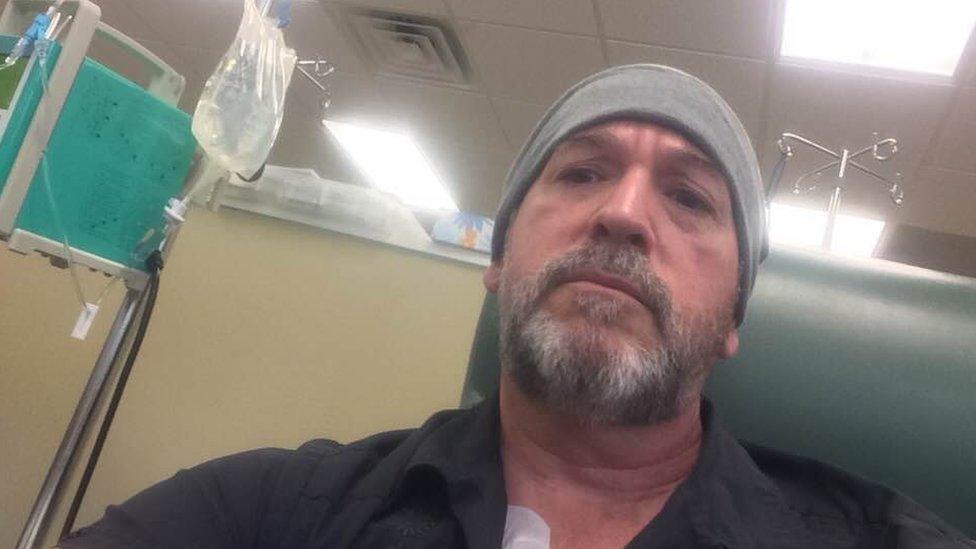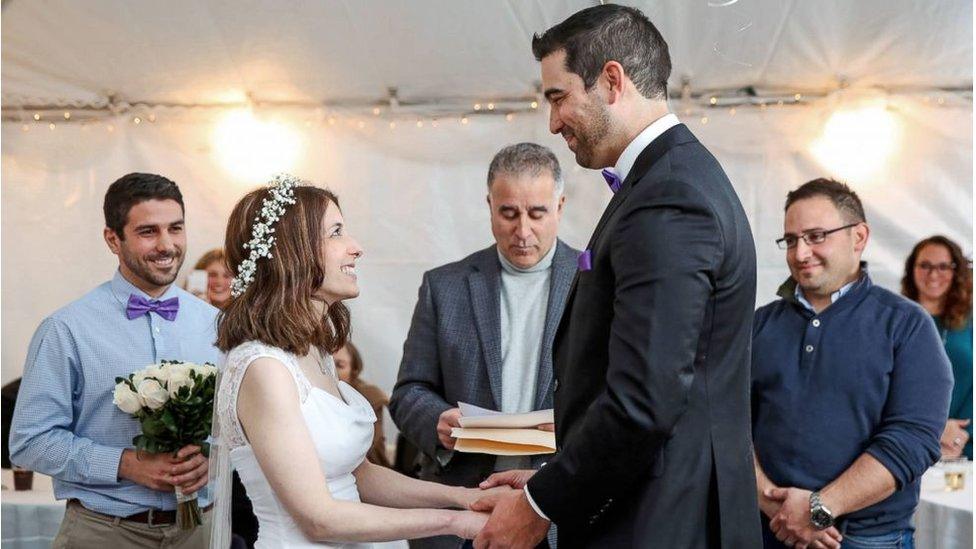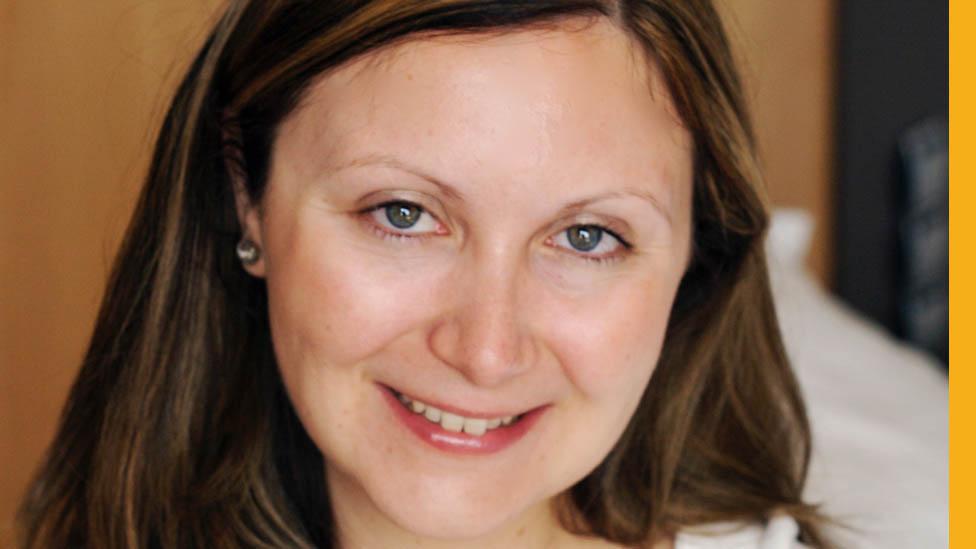Teachers donate 100 sick days to colleague with cancer
- Published

Mr Goodman, 56, teaches in West Palm Beach, Florida
Robert Goodman had run out of options.
When the Florida history teacher was diagnosed with colon cancer in May 2018, he used up the last of his annual sick leave to receive treatment.
By July, with his leave now all finished, Mr Goodman realised he was due to return to school within two weeks or take unpaid leave.
But he could not face working - not while receiving a debilitating course of chemotherapy that was due to continue until October - or afford to have no income.
"It truly frightened me," he told the BBC. "Chemo really messes with you. I was wondering how I could handle getting up at 5am every day.
"How could I handle all the different side-effects around the kids? How could I handle kids bringing the flu and colds to school?"
Mr Goodman's salvation came through a quirk of the Florida school system - teachers are able to exchange sick leave with one another, or in this case, donate it.
"I asked for help. I just didn't expect to get the help in four days," he said.
Allow Facebook content?
This article contains content provided by Facebook. We ask for your permission before anything is loaded, as they may be using cookies and other technologies. You may want to read Meta’s Facebook cookie policy, external and privacy policy, external before accepting. To view this content choose ‘accept and continue’.
Four days after his Facebook post was made, Mr Goodman found out that teachers had donated enough leave to last him the entirety of his chemotherapy.
In fact, from his most recent conversation with the school he discovered that his education colleagues had donated "around 100 days".
"It surprised me how fast it happened," he said. "But it didn't surprise me that teachers gave.
"Teachers always give - it's a profession of giving.
"But it was extraordinary that so many people were willing to donate those days to me.
"They could have cashed those days in when they retired if they didn't use them. They were in a sense giving me their retirement money to help me heal.
"When hundreds of people shower you with their love it's a life-changing experience."
Allow Facebook content?
This article contains content provided by Facebook. We ask for your permission before anything is loaded, as they may be using cookies and other technologies. You may want to read Meta’s Facebook cookie policy, external and privacy policy, external before accepting. To view this content choose ‘accept and continue’.
Mr Goodman will not have to return to school until January 2019.
In this time, he will be able to complete his course of chemotherapy and rest, and he is grateful to everyone who gave their sick leave to make this possible.
"It's not just teachers who donated," he said. "Staff members, principals, cafeteria workers - I don't know half these people, but we know each other because we're in schools.
"We have each other's backs. We're a family.
"Ever since going on Facebook, I have been messaged by people who had cancer, who survived cancer.
"It's been a really wonderful experience. It's not just teachers who made me feel part of a family. It's these people as well who helped."
Allow X content?
This article contains content provided by X. We ask for your permission before anything is loaded, as they may be using cookies and other technologies. You may want to read X’s cookie policy, external and privacy policy, external before accepting. To view this content choose ‘accept and continue’.

Sick leave in US
Sick leave, along with nearly all aspects of public education, is a state-led responsibility in the US. As such, there are no policies at the federal level determining how and when teachers can take sick days.
Schools across the US vary in their rules on teacher benefits and sick leave and exact policies are determined district-to-district.
In Palm Beach County, Florida, full-time teachers start each year with four sick days - they then accumulate one day of sick leave each month.
As a precaution for times of severe illness, teachers can also opt in to a sick leave bank - a collective system meant to distribute extra sick time to members who need it.
School employees can put in one day of leave to join the bank. When they run out of sick leave because of a serious illness, they can ask the bank for more. At least two physicians must sign off the leave request.
If a teacher does not qualify for extended sick leave of any kind, they must take the time off without pay.
As long as the teacher can show a physician's verification of their illness, they will retain insurance benefits.
By Tom Gerken, UGC & Social News

How is US healthcare system working for you?
Healthcare is one of the big issues of the upcoming elections
How is it working for you?
Email us at AskAmerica@bbc.co.uk


- Published8 January 2018

- Published25 December 2017
